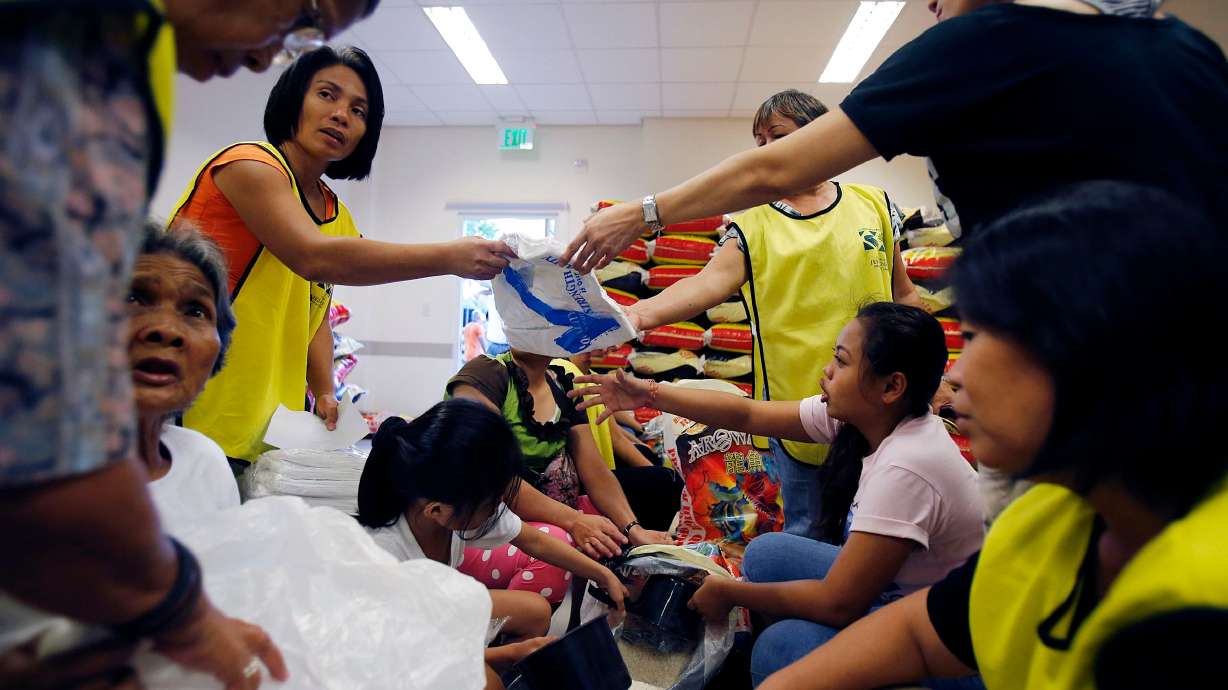Estimated read time: 2-3 minutes
- Secretary of State Marco Rubio emphasizes the role of religious groups in foreign aid discussions.
- He assures that aid will align with U.S. interests, coordinated by the State Department.
- Utah Sen. John Curtis supports faith-based aid, highlighting its tax-free benefits.
SALT LAKE CITY — Secretary of State Marco Rubio said Tuesday the State Department will look to charitable religious organizations like The Church of Jesus Christ of Latter-day Saints as it seeks to adjust foreign aid programs.
In response to a question from Utah Sen. John Curtis, Rubio said the Trump administration will "absolutely" consider the role of the Church of Jesus Christ and other philanthropic entities, while relying on regional bureaus to make decisions about the kind of foreign assistance that advances American interests abroad.
"We're going to be doing humanitarian relief, disaster relief," Rubio said. "The difference is it's going to be coordinated out of the umbrella of the State Department, and it's going to be part of a cohesive, coherent foreign policy. And it's going to be driven by our embassies and our regional bureaus."
Curtis, a member of the church who served a two-year mission in Taiwan as a young man, said faith groups are ready to help "rebuild and restructure" U.S. foreign aid to "complement the vision" Rubio described "without a drag on the U.S. tax dollar."
"I know there are a lot of people like that ready to jump in and be part of this," Curtis said, also naming Catholic Charities.

Curtis asks about climate
During the Senate Foreign Relations Committee hearing, Rubio fielded pointed questions from Democratic senators over President Donald Trump's disruption of international relationships and his unprecedented deportations of alleged immigrant gang members to Salvadoran prisons.
Rubio also received questions from Republican lawmakers, including Utah Sen. Mike Lee, over uncertainty surrounding what international organizations will lose U.S. funding and how the State Department plans to maintain America's position in global negotiations.
Curtis asked whether the Trump administration continues to value having a U.S. presence at international climate conferences like the Conference of the Parties.
Since entering Congress, Curtis has spearheaded efforts to articulate a Republican message on environmentally responsible energy innovation, including by leading multiple GOP delegations to meetings of the Conference of the Parties.
"I believe that a Republican voice is really important at that table," Curtis said.
Rubio said energy production will be at the forefront of foreign policy conversations for the next century as nations grapple with the intense energy demands created by artificial intelligence.

Lee questions international organizations
Long a critic of international organizations like the United Nations, Lee complimented Rubio's "clear-eyed vision" of the Western Hemisphere's independence and asked him how the administration would determine which global initiatives to defund.
The answer, Rubio said, is simple, and is the same one each of the State Department bureaus will be tasked with identifying.
"The assessment is very simple," Rubio said. "Is our participation in this organization furthering our national interests or not?"









